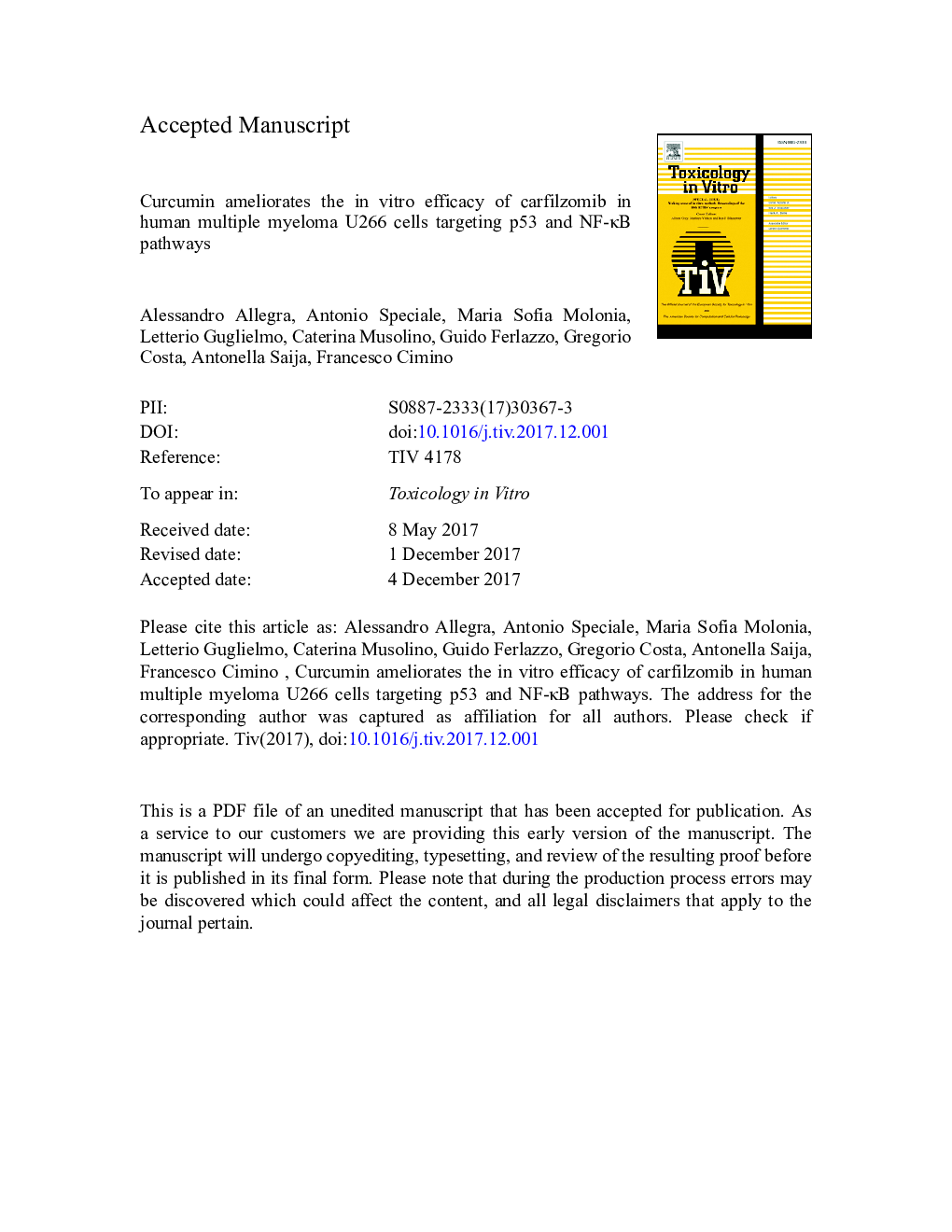| Article ID | Journal | Published Year | Pages | File Type |
|---|---|---|---|---|
| 8554084 | Toxicology in Vitro | 2018 | 39 Pages |
Abstract
Multiple myeloma (MM) is a malignant B-cell neoplasm with accumulation of malignant plasma cells in bone marrow. Pharmacological therapy improves response frequency even if with various associated toxicities. Herein, we investigated if combination of curcumin with carfilzomib (CFZ) can induce a better cytotoxic effect on in vitro cultured U266 cells. Cell viability data showed that curcumin significantly ameliorates CFZ cytotoxic effect. Furthermore, curcumin alone did not affect proteasome at the tested dose, confirming the involvement of different mechanisms in the observed effects. U266 cells exposure to curcumin or CFZ increased reactive species (RS) levels, although their production did not appear further potentiated following drugs combination. Interestingly, NF-κB nuclear accumulation was reduced by treatment with CFZ or curcumin, and was more deeply decreased in cells treated with CFZ-curcumin combinations, very likely due to the different mechanisms through which they target NF-κB. Our results confirmed the induction of p53/p21 axis and G0/G1 cell cycle arrest in anticancer activities of both drugs, an effect more pronounced for the CFZ-curcumin tested combinations. Furthermore, curcumin addition enhanced CFZ proapoptotic effect. These findings evidence that curcumin can ameliorate CFZ efficacy, and lead us to hypothesize that this effect might be useful to optimize CFZ therapy in MM patients.
Related Topics
Life Sciences
Environmental Science
Health, Toxicology and Mutagenesis
Authors
Alessandro Allegra, Antonio Speciale, Maria Sofia Molonia, Letterio Guglielmo, Caterina Musolino, Guido Ferlazzo, Gregorio Costa, Antonella Saija, Francesco Cimino,
